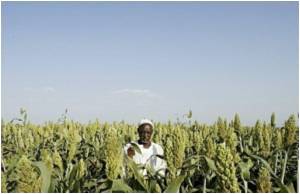The entire wheat genome has been sequenced by scientists at Liverpool, University of Bristol and the John Innes Centre.

"The information we have collected will be invaluable in tackling the problem of global food shortage. We are now working to analyse the sequence to highlight natural genetic variation between wheat types, which will help significantly speed up current breeding programmes," said Professor Neil Hall.
"Wheat production is already under pressure with failures in the Russian harvest driving up world wheat prices. It is predicted that within the next 40 years world food production will need to be increased by 50 per cent," Hall said.
"Developing new, low input, high yielding varieties of wheat, will be fundamental to meeting these goals. Using this new DNA data we will identify variation in gene networks involved in important agricultural traits such as disease resistance, drought tolerance and yield," he added.
Source-ANI
 MEDINDIA
MEDINDIA




 Email
Email










